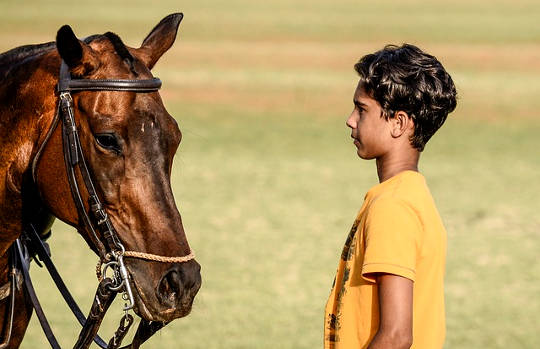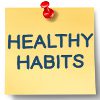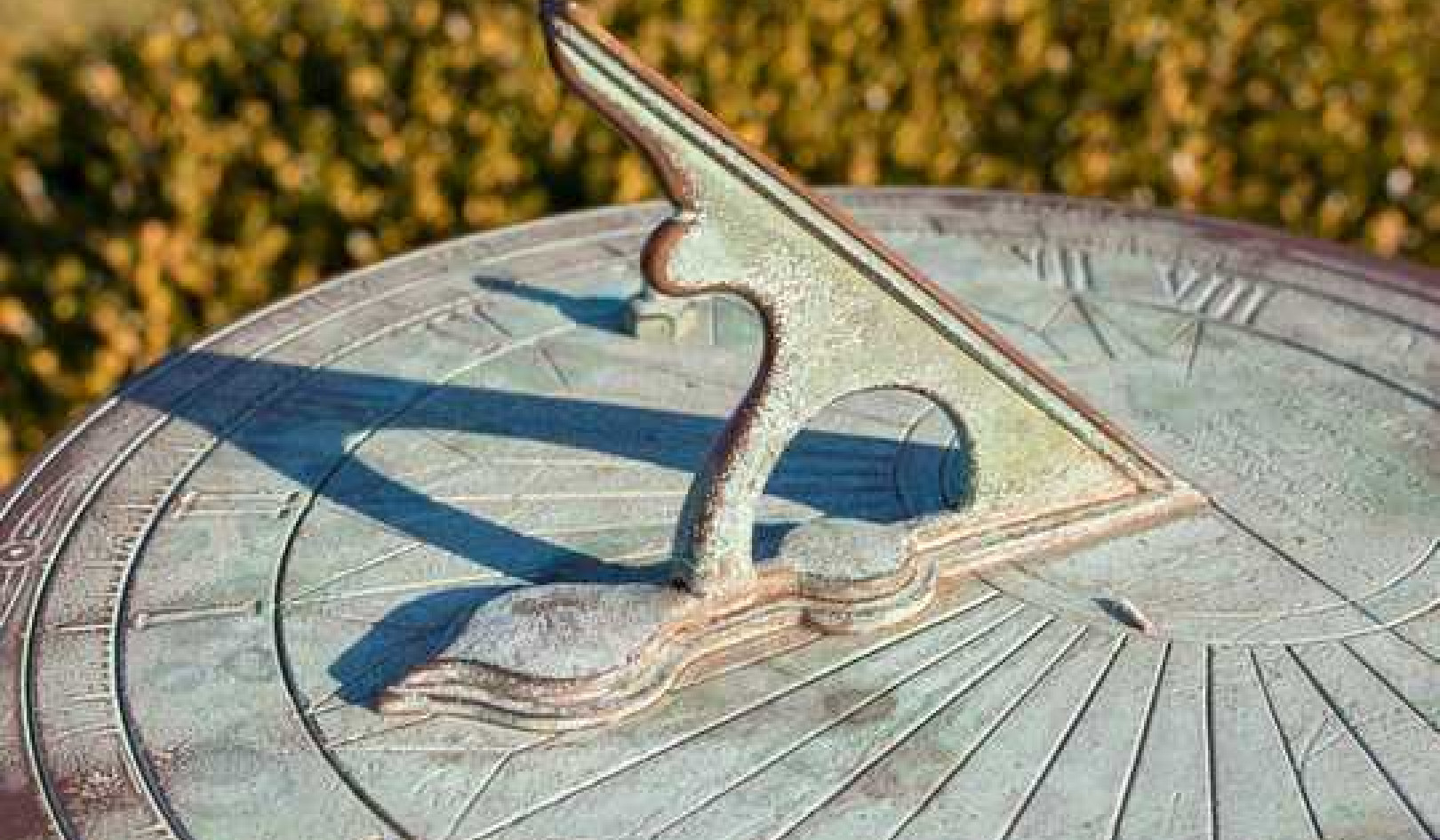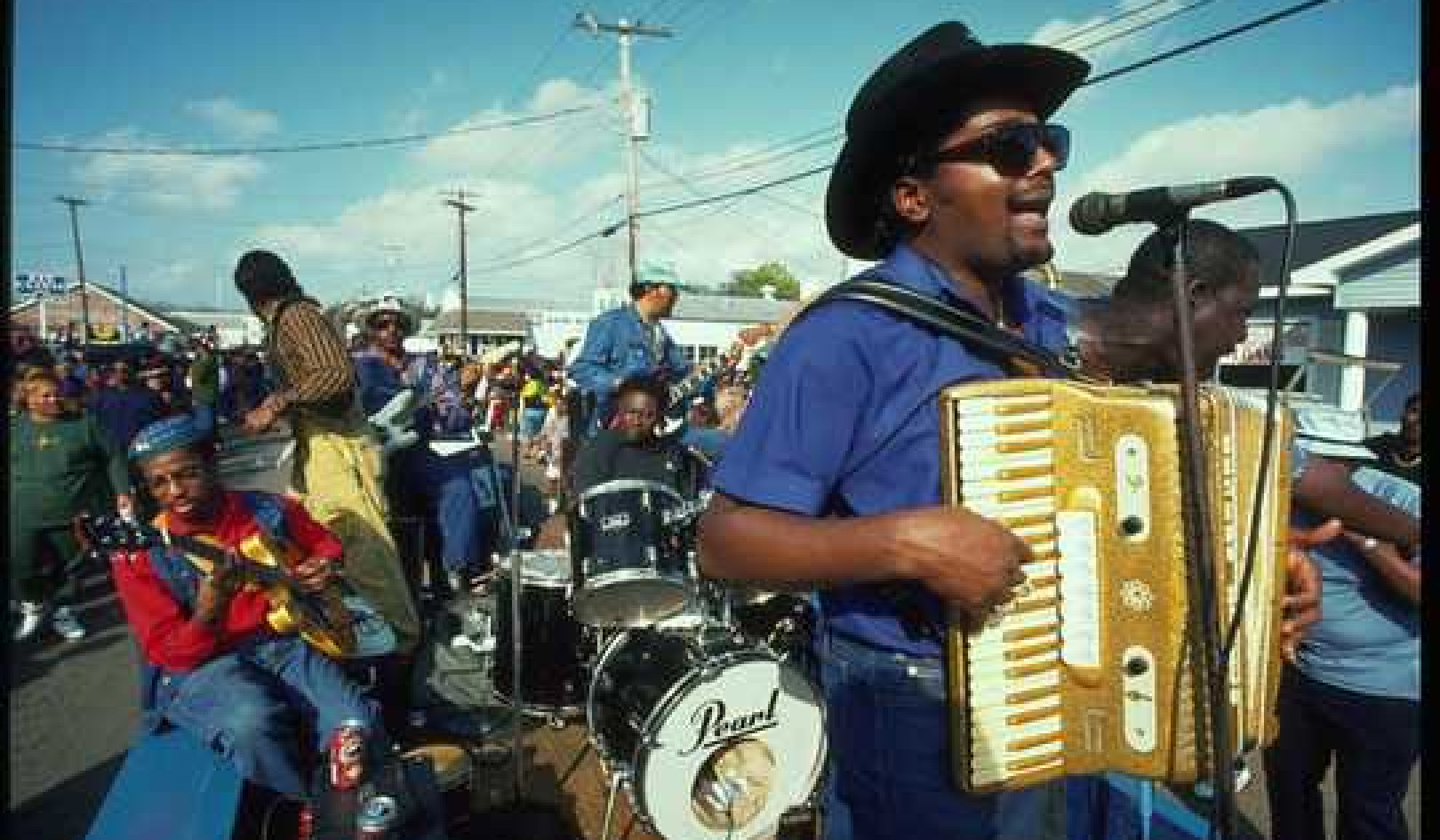
In his enlightening book The Heart of the Buddha’s Teaching, Vietnamese Buddhist monk Thich Nhat Hanh writes,
“There is a story in Zen circles about a man and a horse. The horse is galloping quickly, and it appears that the man on the horse is going somewhere important. Another man, standing alongside the road, shouts, ‘Where are you going?’ and the first man replies, ‘I don’t know! Ask the horse!’ This is also our story. We are riding a horse, we don’t know where we are going, and we can’t stop. The horse is our habit energy pulling us along.”
Do you have any habits? Of course that is a rhetorical question because we all have habits. If I were to ask you to write down the habits that most quickly come to mind, more than likely you would list your bad habits first. The probability is that you also have more than a few good habits; it’s just that the bad ones seem to more obviously “run amok,” pulling us in every which way, which is why they tend to come to mind first.
Where Are Your Habits Leading You?
Staying with the horse metaphor, perhaps the real question is not so much, “Do you have habits,” but rather, “Are you riding them in a direction that is taking you closer to, or further from, the life you dream of having?”
Changing the direction in which the horse is moving is simple if you know how and, while it’s not always easy, it is well worth the effort.
“Our self-image and our habits tend to go together. Change one and you will automatically change the other.” — DR. MAXWELL MALTZ
The habits operating in your life, conscious or unconscious, good or bad, are serving you in projecting your current self-image onto the screen of your life. In other words, working deductively from effect back to cause, if you look at your habits you can track them back to how you really feel about yourself. This is true of both your good and bad habits.
Staying in the Rut or Changing Your Habits?
 We all are subject to developing habits in our lives that can become toxic (and similarly addictive) if we are not mindful of the subtleties that come with living in the relative comfort of the rut rather than doing the necessary work to move beyond its confines. Often times we avoid confronting our lifelong habits because they are comfortable and it’s easier to stay with them than manage the discomfort confronting them will bring.
We all are subject to developing habits in our lives that can become toxic (and similarly addictive) if we are not mindful of the subtleties that come with living in the relative comfort of the rut rather than doing the necessary work to move beyond its confines. Often times we avoid confronting our lifelong habits because they are comfortable and it’s easier to stay with them than manage the discomfort confronting them will bring.
A part of us dies when any negative habit becomes a mindless activity, especially when we continue to do it because it’s easier (or less painful) than leaning into the discomfort of change. In the process, we unconsciously become a little more numb to life. It’s as if we are sending a very subtle message to the universe that we are not really interested in being fully engaged in being alive. We need to be mindful of this because, as we know, the universe is listening (and it can’t take a joke); rather, it can only say yes to our deepest beliefs and intentions.
Often we lack clarity because negative thoughts, repeated over and over, day after day, and year after year, become ingrained in our unconscious mind where they lay below the field of our awareness, slowly taking on a life of their own. Regardless of where it shows up in our lives, the energy that drives most negative habits and addictions is the need to avoid dealing with how we really feel about ourselves and life in the present moment. As an example: While some people may feel dead in their job, in a strange way, it is safe and comfortable living in the security of conditions that don’t demand change, growth, or risk in the present moment.
Making A Choice: Letting Our Habits Lead Us, or Training Our Habits...
“I assure you that you are not your habits. You can replace old patterns of self-defeating behavior with new patterns, new habits of effectiveness, happiness, and trust-based relationships.” —STEPHEN COVEY
Habits are a part of the human condition. It’s natural to have them. Begin by ceasing to see habits as good or bad, but simply energy that is being directed (for the most part unconsciously) in one of two ways: constructively or destructively.
Once conscious of this fact, we are at choice. Metaphorically, we can choose to be dragged through life by the horse of our habit energy, or we can train that same horse and ride it, letting it assist us in moving in the direction of our choosing.
Reprinted with permission of the publisher,
Jeremy P. Tarcher/Penguin, a member of Penguin Group (USA).
©2011 by Dennis Merritt Jones. www.us.PenguinGroup.com.
Article Source
The Art of Uncertainty: How to Live in the Mystery of Life and Love It
by Dennis Merritt Jones.
 What if we could learn how to be at peace with uncertainty and embrace the possibility that the future is full of mystery, excitement, and unlimited opportunity? What if we discovered that a new paradigm can be more fulfilling, more rewarding, and more peaceful than what we have known? Living in the I don't know and loving it is an art form we can all master and The Art of Uncertainty is the perfect guidebook.
What if we could learn how to be at peace with uncertainty and embrace the possibility that the future is full of mystery, excitement, and unlimited opportunity? What if we discovered that a new paradigm can be more fulfilling, more rewarding, and more peaceful than what we have known? Living in the I don't know and loving it is an art form we can all master and The Art of Uncertainty is the perfect guidebook.
Click here for more info or to order this book on Amazon
About the Author
 Dennis Merritt Jones is an award winning author, keynote speaker and spiritual mentor. He was the founder and spiritual director of the International Center for Spiritual Living in Simi Valley, CA. Dennis retired from the pulpit in 2008 to take his message to the world by means of his books, sacred journeys travel, spiritual mentoring, keynote speaking and seminars. Learn more about him by visiting his website: www.DennisMerrittJones.com.
Dennis Merritt Jones is an award winning author, keynote speaker and spiritual mentor. He was the founder and spiritual director of the International Center for Spiritual Living in Simi Valley, CA. Dennis retired from the pulpit in 2008 to take his message to the world by means of his books, sacred journeys travel, spiritual mentoring, keynote speaking and seminars. Learn more about him by visiting his website: www.DennisMerrittJones.com.
Watch a video with Dennis: The Art of Uncertainty
Books by this Author:
at InnerSelf Market and Amazon

























